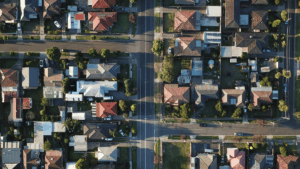Housing First as Housing Policy
 In 2024, Georgia’s housing policy was one of the first (along with Florida and Utah) to bring a new level of accountability to the sector. The actions of these states were an intentional shift away from the “housing first” model that the U.S. Department of Housing and Urban Development (HUD), state, and local governments have predominantly used to date to serve the unhoused.
In 2024, Georgia’s housing policy was one of the first (along with Florida and Utah) to bring a new level of accountability to the sector. The actions of these states were an intentional shift away from the “housing first” model that the U.S. Department of Housing and Urban Development (HUD), state, and local governments have predominantly used to date to serve the unhoused.
The Housing First approach prioritized subsidized options for permanent housing over programs that offered temporary housing contingent on participating in wrap-around services, such as addiction recovery treatment, mental health care, and job search and skills development support.
Homelessness Trends in Georgia
Compared to national trends, Georgia is not in the most dire circumstances regarding the increase in homelessness. From 2019 to 2024, the growth in homeless persons in Georgia (17.7%) was half the national rate (35.9%). That said, there are heightened concerns about housing insecurity as rents continue to escalate, and homelessness itself persists, with an estimated 12,290 people in Georgia living without a permanent home.
Accountability in Georgia’s Housing Policy
Georgia’s 2024 HB 1410 – the State Housing Trust Fund for the Homeless – was the vehicle through which accountability requirements were introduced to the state’s approach to serving the unhoused. The new law created the Stable Housing Accountability Program (SHAP,) which is administered at the state agency responsible for housing programs, the Georgia Department of Community Affairs (DCA).
DCA received an allocation of $850,000 to award competitive grants that support housing projects meeting accountability requirements. Accountability measures listed as requirements in the SHAP Notice of Funding Availability (NOFA) include participating in job training, actively searching for jobs, receiving mental health care and substance abuse treatment as needed, and refraining from any criminal activity.
Further Legislative Action
In the 2025 session, several bills related to homelessness were introduced. A few passed, including two specific to homeless efforts in the Episcopal Diocese of Georgia’s Savannah and Chatham County. Also passed was HB 96, which increases the number of members on the State Housing Trust Fund for the Homeless Commission from nine to 11 members. It specifies that the Governor will appoint the two new slots. This is in addition to the three already designated as Governor appointments. The Governor has until May 17, 2025, to veto or sign these three bills. Otherwise, they take effect automatically on that date.
Available Programs in Georgia
In addition to SHAP, there are three other housing-related programs administered by DCA. There is also a program overseen by the Georgia Department of Behavioral Health and Developmental Disabilities (DBHDD):
- Rural Workforce Housing Initiative (DCA): Created in the 2023 Legislative Session, this $35.7 million fund within the OneGeorgia Authority awards competitive grants for workforce housing and related amenity projects in rural areas.
- Georgia Housing Voucher Program (DBHDD): Housing vouchers for persons with psychiatric disabilities.
- Housing Choice Voucher Program (DCA): Housing voucher program of HUD (formerly referred to as Section 8).
- Low-Income Housing Tax Credit (DCA): Tax credits for owners of qualified properties that rent to low-income tenants.
Sources:
- U.S. Department of Housing and Urban Development, Continuum of Care Homeless Assistance Programs Homeless Populations and Subpopulations Reports, 2019 and 2024
- Georgia Department of Community Affairs, Stable Housing Accountability Program Notice of Funding Availability
- Georgia General Assembly Legislative Search; and Dong, Hillary, “How Does Georgia Fund Housing?” Georgia Budget & Policy Institute Fact Sheet, July 17, 2024

